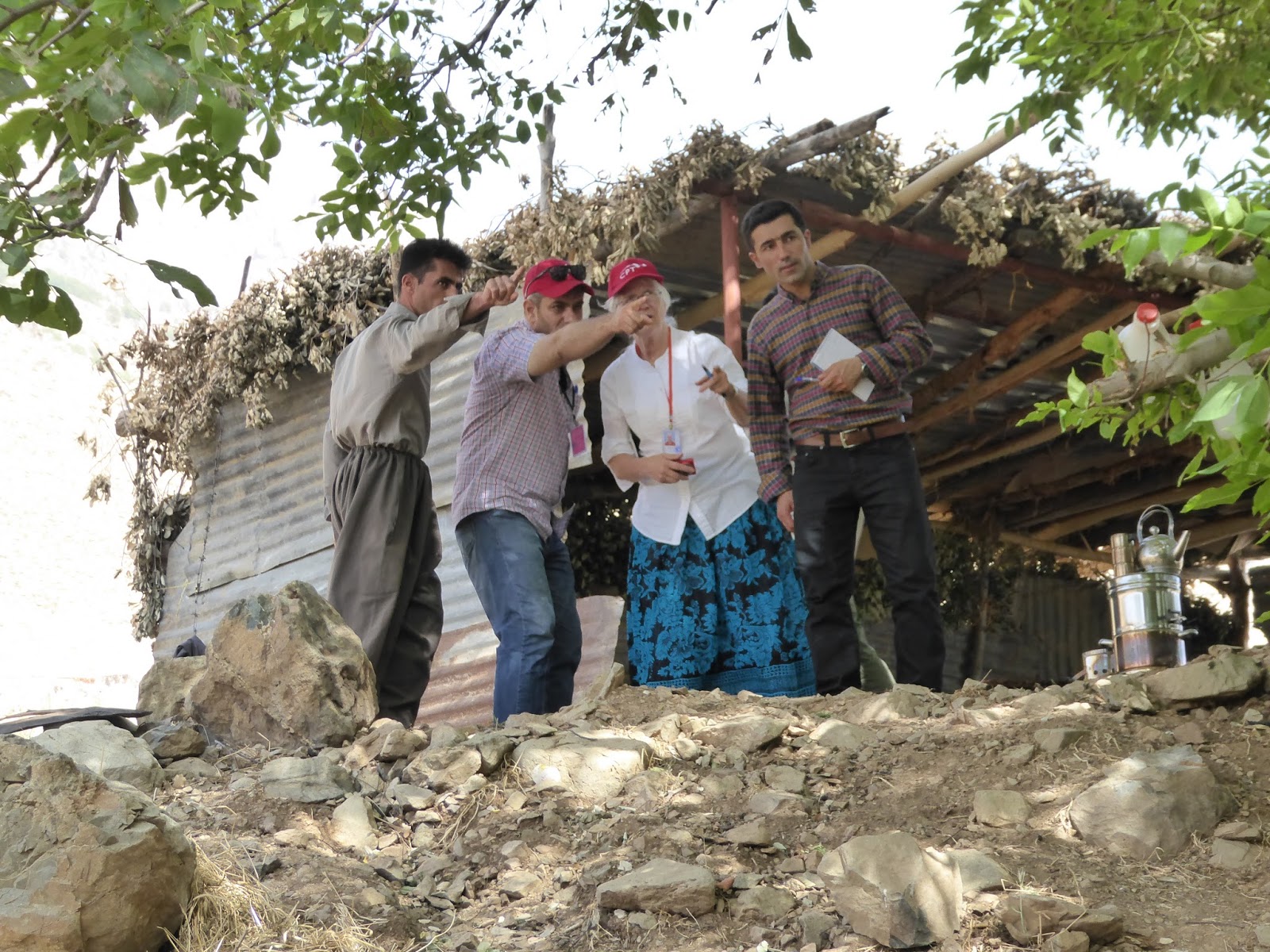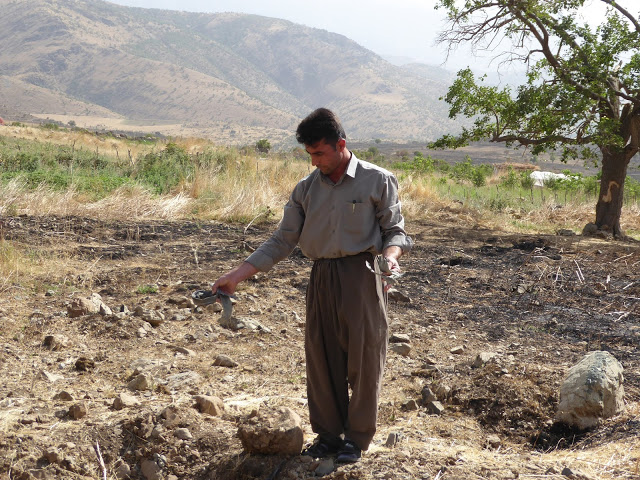CPTnet
16 August 2016
IRAQI KURDISTAN: To drink tea without fear–Iranian bombing in Sidakin
By Muhammad Salah
[This release has been adapted for CPTnet. The original is available on the Iraqi
Kurdistan team’s blog.]
 |
| Photo by: Julie Brown. |
In the middle of Ramadan this year, farmers in Iraqi
Kurdistan experienced bombing by Iran. In the last three years there were not
any bombingsalong the border with Iran. It was also the first time the area of
Barbazin in Sidakan sub-district was bombed so heavily.
The team decided to visit the area and to learn what had
happened. After driving for several
hours on the highway and unpaved roads we had the privilege to meet Rashad.
While I parked the car near his house, I could see him outside making a fire
for his tea. Rashad stood up to look at these strangers coming to his tents. As
I greeted him, he very warmly greeted me in return and firmly shook my hand.
Through his eyes and smile I could see that he was excited to know more about
who we were.
I noticed he had difficulty walking and I was not sure if he
was disabled or if he had lost his leg because of a landmine. The reality
of life in a border village is that there is always one or more disabled
villager who has lost a part of his or
her body because of mines.
From his tent he pointed and tried to show us the location
of a bomb that hit the ground nearby. He said he would go with us so we could
see the crater more closely. Because of his leg I asked him, “Will it be too
much for you?”
He said,” I am fine; I can walk.”
While we were walking he said, “I am also a victim of the
Iranian bombing during Iraq-Iran war.” When he was a baby, the town of Sidakan
was bombed by Iran. As people were trying to escape and leave the town, many
people were piled in one pickup truck. In the chaos, someone stepped on
his leg. He said, “I was not wounded by the bombs but the war caused me to lose
the full use of my leg.”
As we walked, the beauty of farmland disappeared, and we
were walking through fields that had been burned black by the fires started
during the bombing. “Some families decided to not come back again after
bombing because they lost everything,” Rashad said.
We arrived at the location of the exploded bomb and he pick
up some of the pieces left from the rocket to show us. My mind started to
think, what are those connections between the villager’s soul and the land? How
many of us are ready to stay in an unsecure area and still show our smile and
not be disappointed?
Rashad appreciated our visit and was so grateful. He hopes
there will not be bombing anymore and so we can have tea together without fear.
 |
| Rashad showing the fragments from the bombing to CPTers. Photo by: Julie Brown. |
Update:
Rashad called the team a few days after this story was published to report that
he was working in the fields with his mother, father, and brother, when Iran
started to shell the area. The shelling was still occurring as he spoke. Rashad was calling from the hospital in
Sidakan, where his brother was having trouble breathing because of smoke
inhalation. He was distressed about his brother’s condition, but was also
afraid the shelling would burn his tents and that of his family and other
farmers, who will likely not be able to return to finish out the farming
season.
It costs $50 every time the Christian Peacemaker Teams – Iraqi Kurdistan goes up into the mountains. You can help them make that trip! www.cpt.org/donate



